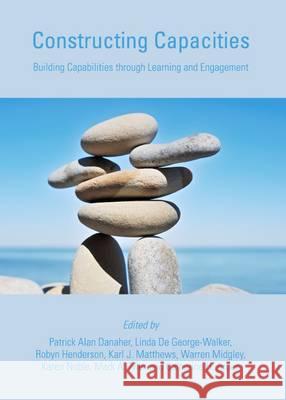Constructing Capacities: Building Capabilities Through Learning and Engagement » książka
Constructing Capacities: Building Capabilities Through Learning and Engagement
ISBN-13: 9781443841795 / Angielski / Twarda / 2012 / 295 str.
Constructing Capacities: Building Capabilities through Learning and Engagement explores several contemporary manifestations of individuals, groups and communities participating in varying types of learning and thereby engaging effectively and productively with their contexts and environments in order to build and develop their multiple capacities. These capacities are seen as crucial to overcoming particular kinds of challenges and to attaining specific types of aspirations that are valued highly by the respective individuals, groups and communities. Despite this common valuing of constructing capacities, we still know relatively little about how capacities can be built and enhanced in ways that are equitable, sustainable and transformative. Much of the literature highlights contextually specific factors that facilitate capacity-building for particular groups of participants at specific times, and that are founded on demonstrated principles such as understanding and engaging with those participants' respective aspirations, circumstances and needs. Yet what works to develop capabilities in one context might not succeed in another context, even with the same participants - generating momentum and achieving scale and sustainability are often challenges when seeking to build capacities. For all these reasons, it is both timely and useful to extend contemporary understandings of capacities and how they can be constructed effectively and sustainably. The 14 chapters in this book take up this challenge by presenting theoretically framed and rigorously researched accounts of successful capacity-building in diverse educational settings, clustered around four foci: o conceptualising and contextualising capacities; o constructing students' and teachers' capacities; o constructing workers' capacities; o constructing researchers' capacities. These accounts generate new and important understandings of what capacities are, how they can be constructed and supported, and how they enhance positive outcomes for individuals and communities as well as nationally and globally.











